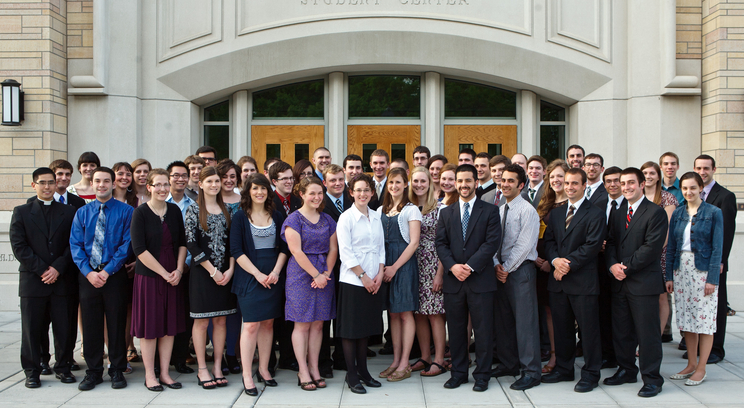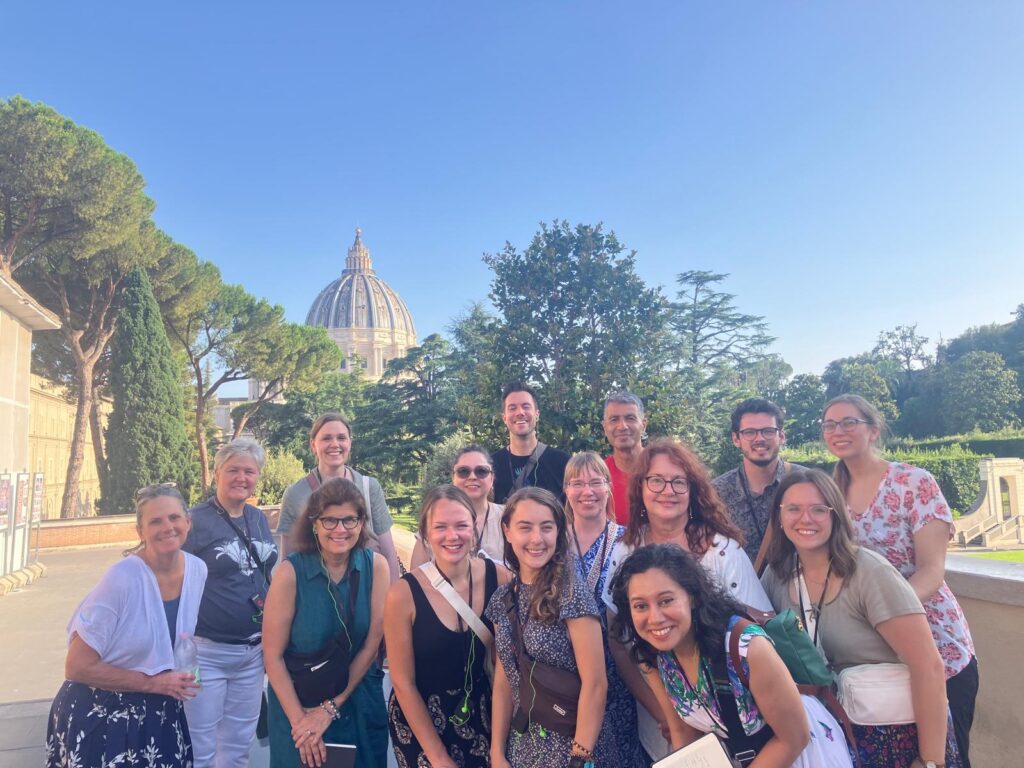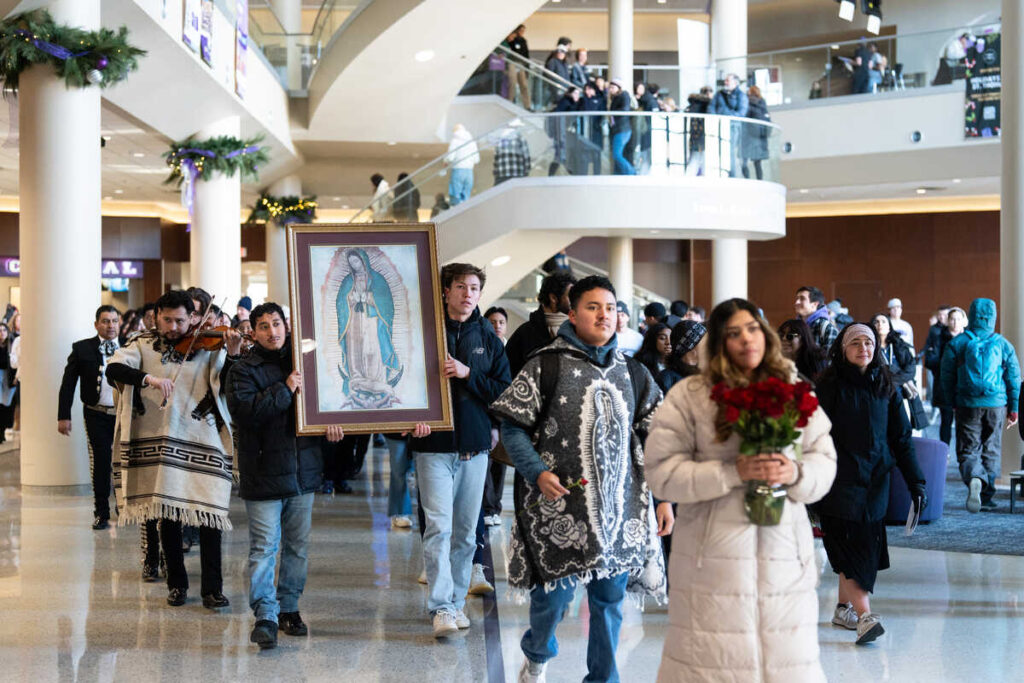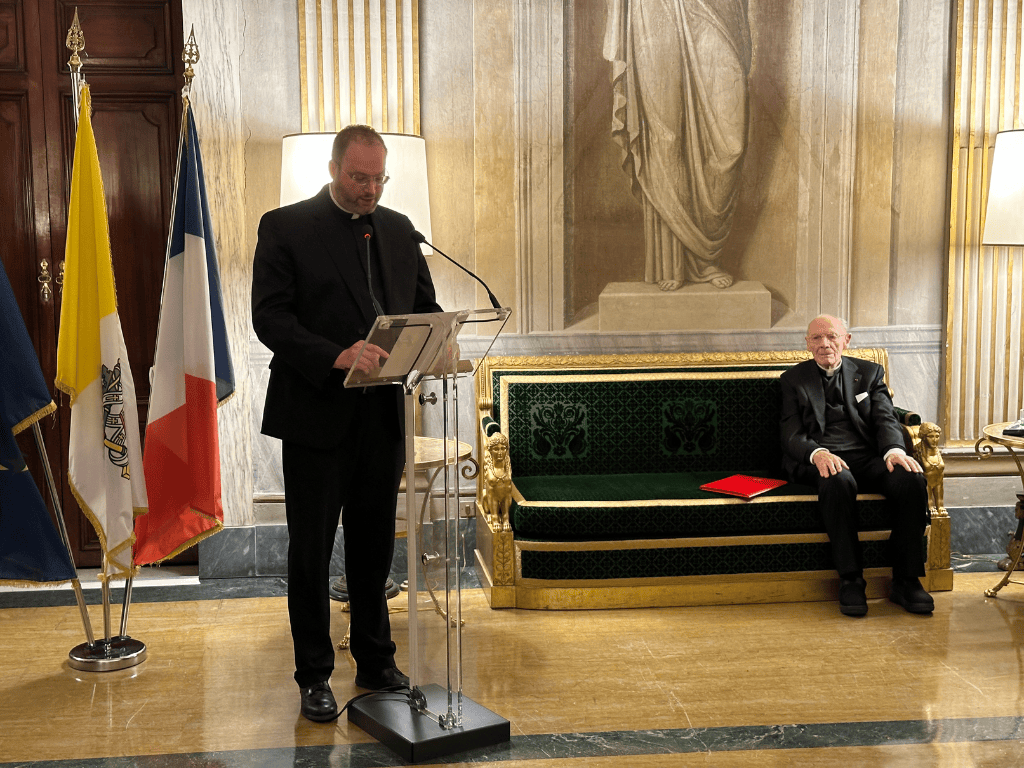“The Leadership Intern program grounded me during my undergraduate studies and was a unique learning experience that you really can’t find in a classroom. As we discovered our own leadership strengths, I felt empowered in a way that I never had before,” said Molly (Wiersma) Dellaria ’11 (Catholic Studies and psychology), a two-year student of the program and now a Graduate Fellow at Creighton University.
Directed by Father Michael Keating, the Leadership Intern program seeks to equip and train future Catholic leaders through seminars, hands-on leadership experience, interaction with civic and Church leaders, and intensive formation using a unique methodology that integrates academics, practical experience and philosophy.
Katie Lahti ’10 reflected on the program overall, “I realized that while in the intern program I learned the best definition of leadership put into words – what I still view as the very core of leadership. I learned what it means to be a leader based on what it means to be a human person living in society, embracing the truths in many secular tidbits of good leadership practices but recognizing their foundation in the one truth.”
This leadership philosophy is encapsulated in the Five Building Blocks of Catholic Leadership, developed by Father Keating. They are, in order of importance, faith, character, vocation, gift and skills. Current leadership models usually begin with questions of skill; some include gift and some attempt a limited engagement with character. Our program teaches a different model; namely, that a leader is someone a person is, rather than simply something a person does. This means that faith and character are the foundation upon which gift and skill find their right order.
“Through this program, I realize the gifts that God has given me are more than enough to serve … which means that I don’t have to sacrifice living and working in the real world. I am being called to use and develop my leadership gifts even more,” Dellaria added. In addition to forming a cooperative understanding of leadership across groups and personalities, the interns receive a clear vision and training in a Catholic understanding of leadership that will serve them both in their immediate responsibilities and in the tasks and roles they take up after graduation. “For better or worse, leaders greatly impact our culture. Our world is desperate for good leaders to step up to the plate and lead like Christ. The Catholic Studies Leadership Intern program emphasized the importance of praying daily and frequenting the Sacraments. By doing so, we are constantly reminded to see our daily lives as mission – that every moment in our day provides an opportunity to know Christ more deeply and share Him more freely,” Michael Selenski ’10 wrote.
An essential component of our training is vocational discernment. A number of the interns are pursuing priesthood or religious life or are involved in lay apostolates; others have gone on to further professional study; still others have entered careers in business, education, or social and public service.
The 10-day Spring Institute is the capstone of the program, during which the interns intensively examine the concrete implications of a chosen aspect of leadership in Church and society. The Joseph and Edith Habiger Institute for Catholic Leadership, part of the Center for Catholic Studies and home to the Leadership Intern program, both secures the year’s work among the interns and exposes them to people and situations that prove formative for future leadership. In past years the interns have gone to France to study the principles of building a Christian culture, to Washington, D.C., to understand a Catholic’s duties toward civil society, to Peru to explore the theme of Latino Catholicism, and to Denver, Colo., where they got a behind-the-scenes look at the demands of Catholic charity work. Matthew Snyder ’07 (Catholic Studies and theology) believes that the institute provides a fundamental aspect of leadership. “The program painted a fuller picture of what Catholic leadership demands today by really examining the foundations of what a culture is and where it gets its influence. (In 2007) we traveled to France to study how both new and established Catholic movements were finding a renewed energy in their faith against a pressing secular culture. We lived with these movements as they inspired change on different levels and learned from their adversity. We could then apply these similarities to the different areas in which each of us was responsible back on the homefront.”
To learn more about this program, visit the Catholic Studies Leadership Intern program website, www.stthomas.edu/cathstudies/leadership/interns.
Read more from Perspectives.






